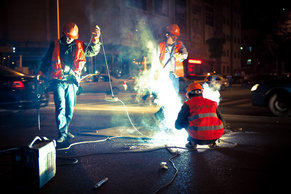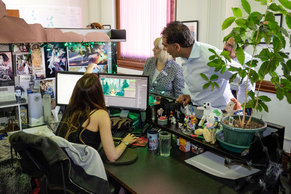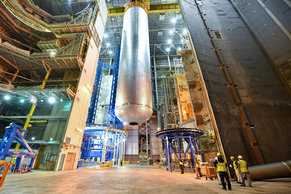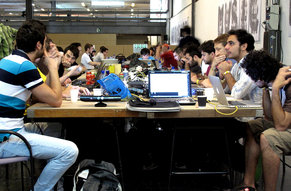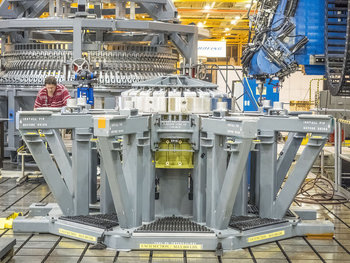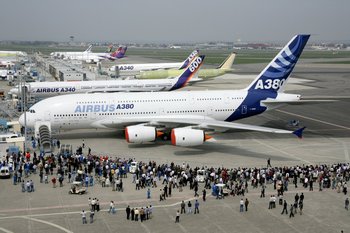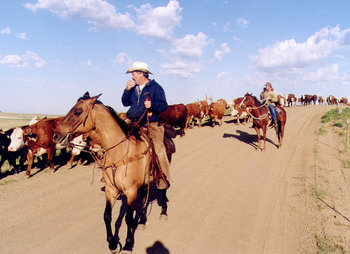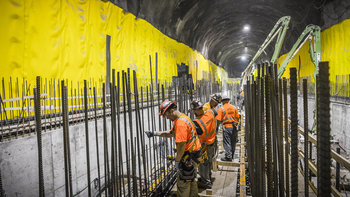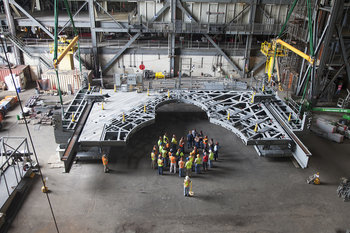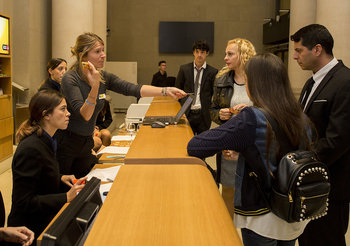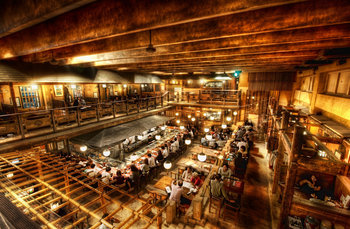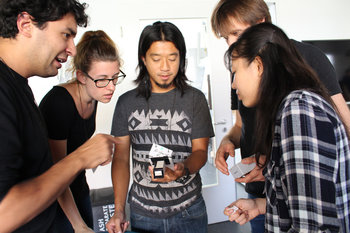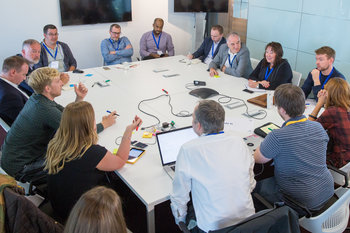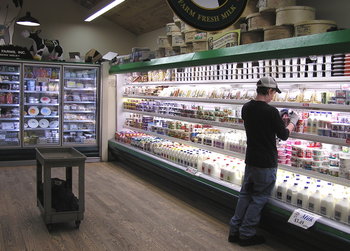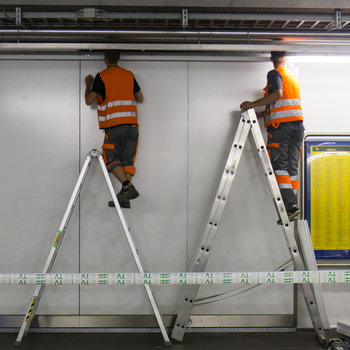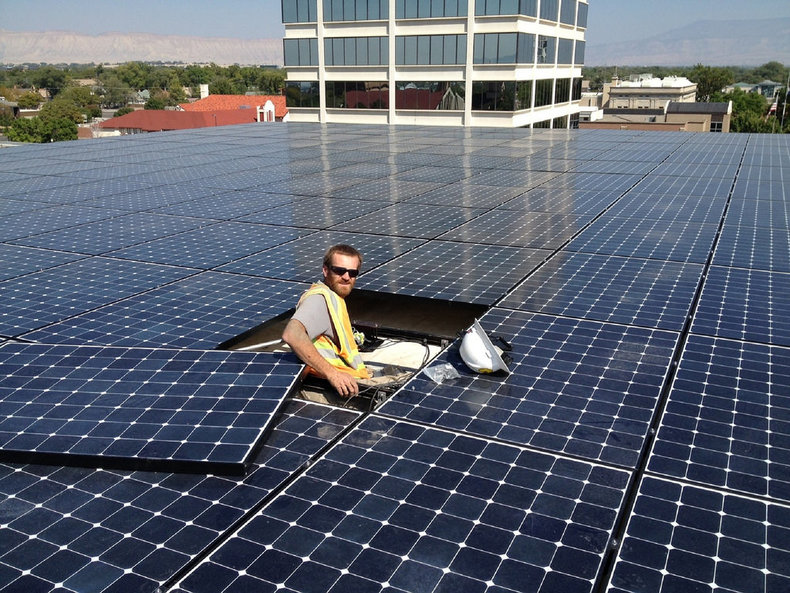
Carbon sequestration | Clean transportation |
Crafts | Eco-tourism |
Energy efficiency | Environmental consulting |
Environmental education | Environmental remediation |
Green buildings | Green construction |
Green finance | Green forestry |
Green products | Green services |
Green technology | Recycling |
Renewable energy | Reuse economy |
Sustainable agriculture | Sustainable fashion |
Sustainable manufacturing | Traditional economy |
Waste management | Water conservation |
Manufacturing
Manufacturing processes and products that have far less impact on the environment than comparable products on the market. For example, a manufacturer that produces biodegradable commercial fishing gear from materials that are responsibly sourced that have little impact on the environment when lost at sea as compared to dominant products on the market.Services
Business and consumer services that produce less dangerous waste and impacts than comparable offerings. For example, a green dry cleaning business that uses chemicals are relatively harmless to the environment as compared to most dry cleaners.Energy
The value chain of producing clean energy such as solar panel manufacturers, installers of rooftop systems, green energy utilities and recycling services for old solar panels.Farming
The production of food in partnership with the land whereby the farmer seeks to minimize negative impacts such as chemical contamination of land, water, air and products.Transport
Products and services that seek to reduce the energy intensity, waste, land use and other impacts produced by the transport of people and goods. For example, a manufacturer of electric buses with zero emissions that completely reuses and recycles each bus at the end of its service life.Forestry
Sustainable forest management that designs harvesting practices to ensure the biodiversity, productivity, regeneration capacity and vitality of forests.Construction
The design and construction of buildings and infrastructure to minimize impact on the environment. This is a complex undertaking that begins with responsible sourcing of materials. Green buildings consider the entire lifecycle impact of the building including factors such as energy efficiency and end-of-life reuse of materials.Finance
The financing of public and private initiatives to clean up the environment or reduce the impact of industry. For example, investment products that allow individuals to invest in green infrastructure.Media
Media that generates and shares ideas for improvement of environmental practices. For example, an architecture blog that explores new ideas for green buildings. The media play an important role in calling out firms for poor environmental practices.Cottage Industry
Cottage industry is a term for small scale businesses run out of the home. It is common for people who want to improve the environment to create products and services at small scale. For example, a reuse cafe that provides a space for the community to help each other to self repair products.Waste Management
Businesses that seek to improve waste management practices. For example, a manufacturer of robots for trash sorting that improves the amount of materials that can be reused or recycled at municipal garbage processing facilities.Tourism
The tourism industry often has a negative impact such as large crowds are bused in to ecologically sensitive areas where they do damage. However, tourism can also have a positive impact where it gives communities a sustainable way to live off the land and sea. For example, responsible wilderness tours that give communities strong incentives to conserve ecosystems and protect wildlife.Fashion
The fashion industry has moved towards a system of fast fashion whereby clothing is inexpensive and trendy such that consumers are encouraged to view clothing as disposable. Green fashion includes responsible sourcing of materials that have less impact on the environment. For example, organic natural fibers that don't contribute to microplastics in waterways when washed. Business models based on reuse of clothing are also an example of a green industry.Summary
The following are common types of green industry: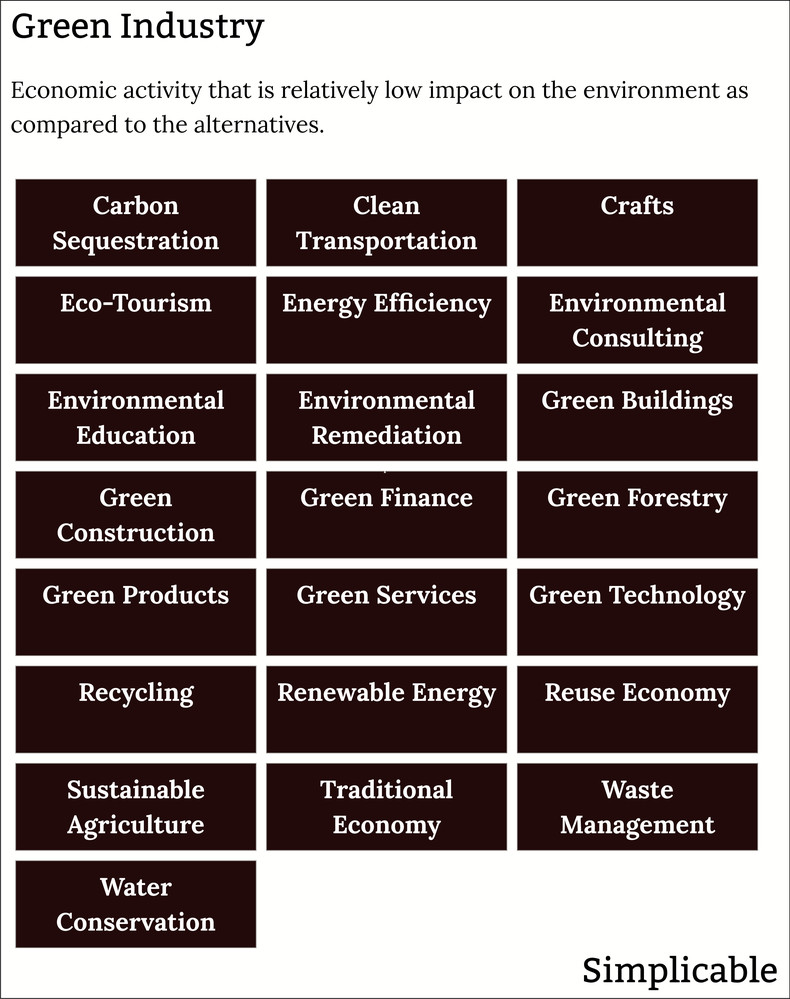
Overview
Industries that have benefits for the planet or that produce less impact than dominant alternatives.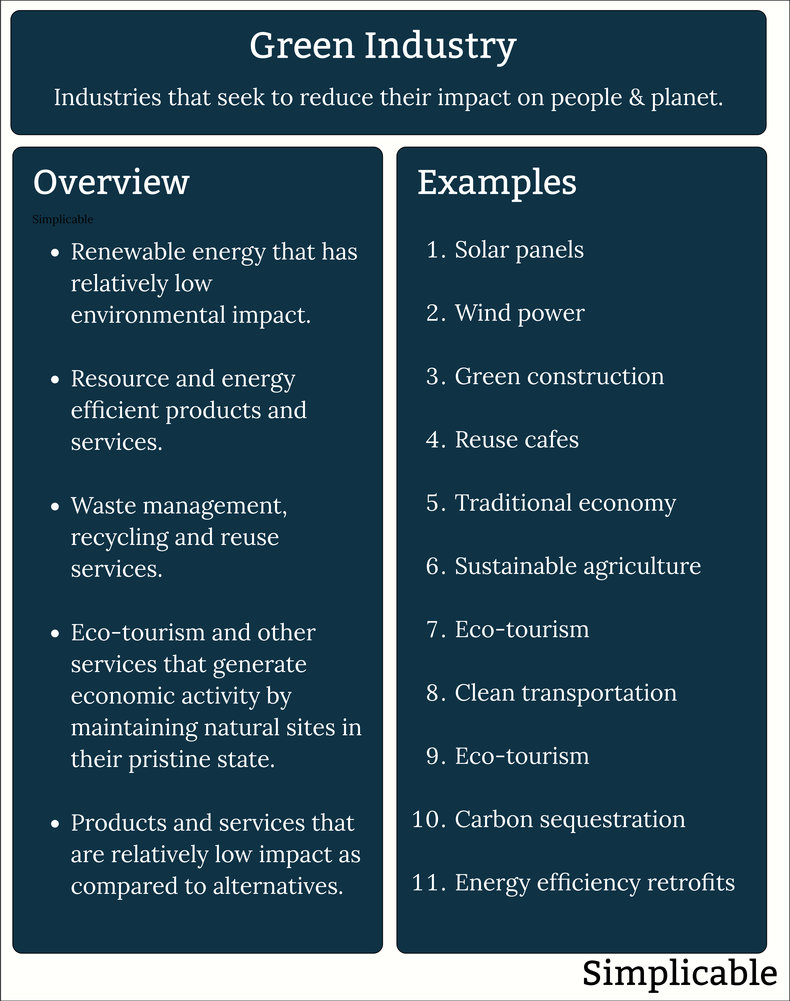
Notes
The term green industry is highly political as it can be used to greenwash industries that have a negative impact on the environment. It is also common for individuals to argue that green industry is an oxymoron as industry always has an environmental impact. The pragmatic view is that businesses that significantly reduce environmental impact as compared to dominant industry practices can be considered green.| Definition: Green Industry | ||
Type | ||
Definition | Businesses that significantly reduce environmental impact as compared to dominant industry practices. | |
Related Concepts | ||





